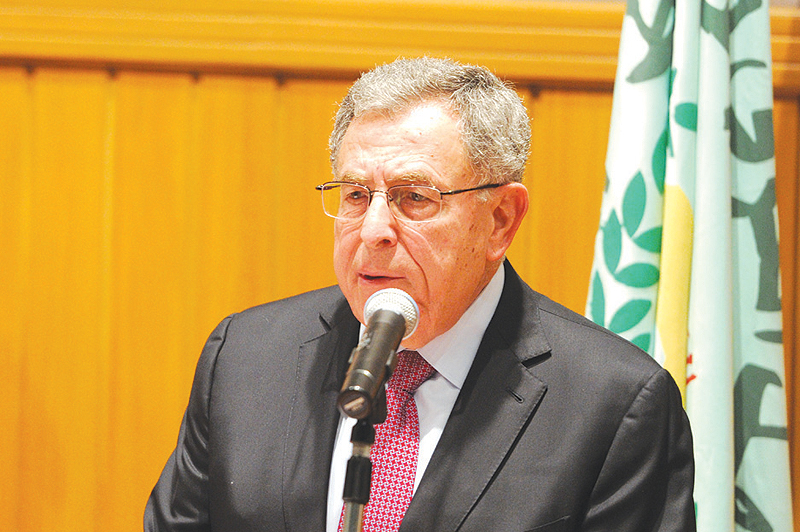Arabs need to invest in health, education, basic services: Former Lebanese PM

KUWAIT: The Arab Planning Institute of Kuwait (API) organized a talk presented by former Lebanese prime minister Fuad Siniora, under the title "Issues of the Present" on Monday at its headquarters. Siniora affirmed that the top duty of Arab countries is to confront old and emerging problems in the region, especially the repercussions of the so-called Arab Spring. He explained that the problems of the Arab world are the result of three main things - the breakdown of the state system in many parts of the Arab world, failure of addressing internal problems and reducing the effectiveness of Arab institutions, as well as regional and international interventions.
As for the strategic vacuum, Siniora said that the first person to speak about it was the former Saudi foreign minister, the late Prince Saud Al-Faisal, who realized the extent of the danger posed by regional and international interference in Arab security. He stressed the need to emphasize the concept of Arabization set by the Arab League at the summit level in 2007. He said this is not an ethnic concept, but a united cultural identity and common cultural framework based on spiritual, moral and human values.
Strategic group
Siniora called for the creation of a "strategic group" of Arab states that would push for the implementation of international resolutions with regards to the so-called Arab Spring to be ready to participate closely with the aim of achieving national and Arab progress. He spoke of three tasks for the proposed Arab strategic group: to work with the administrations of fractured countries to restore stability, immunity and urban, economic, political and social rehabilitation; the continuation of communications with major powers to urge the enforcement of international resolutions on these countries; and to launch one or more initiatives on promoting common interests on the basis of serious and consistent mutual respect as well as adherence to the rule of non-interference in the internal affairs of other states.
Siniora said that there are seven important factors for the Arab world to enter the modern era and achieve sustained stability. "These are: Invest in education, where statistics indicate that a quarter of the children of the Arab world are of basic education age, investing in the health sector, investing in basic services such as the urgent need to strengthen and raise the levels of infrastructure of electricity, communications, roads, transportation, sewage and solid waste."
He pointed out that the fourth factor is the need to make policy allocations and take the necessary initiatives to promote economic growth and business, reducing deficits, reforming public finances and diversifying economies in various Arab countries.
"The fifth factor is the strengthening of efforts towards responsible governance and the adoption of competency standards to give responsibilities based on performance. The sixth factor is the problems of reconstruction and the displaced, while the seventh factor emphasizes the availability of basic freedoms such as freedom of expression and the ability to participate in national and local decisions," Siniora added.
By Faten Omar

